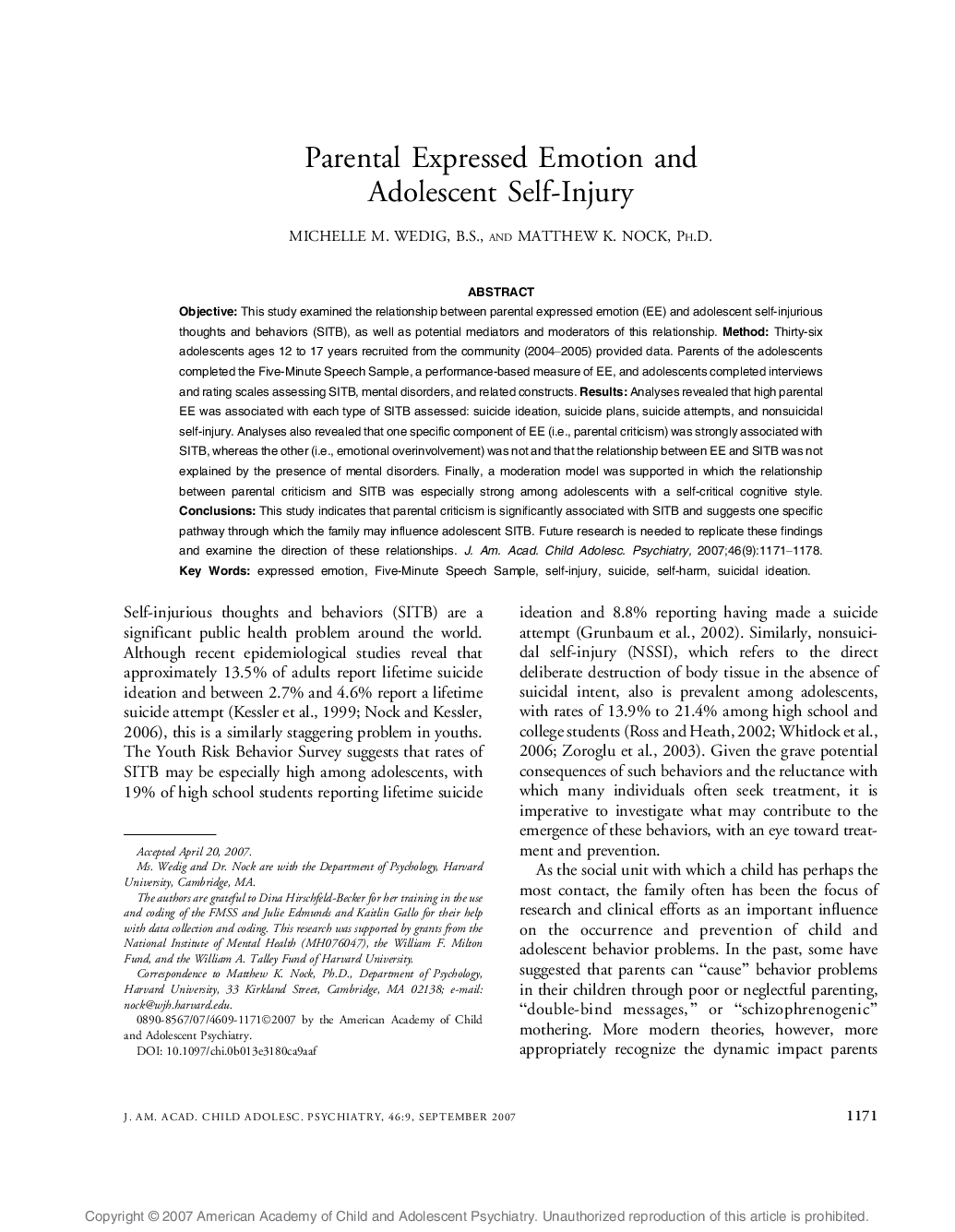| Article ID | Journal | Published Year | Pages | File Type |
|---|---|---|---|---|
| 324400 | Journal of the American Academy of Child & Adolescent Psychiatry | 2007 | 8 Pages |
ABSTRACTObjective:This study examined the relationship between parental expressed emotion (EE) and adolescent self-injurious thoughts and behaviors (SITB), as well as potential mediators and moderators of this relationship.Method:Thirty-six adolescents ages 12 to 17 years recruited from the community (2004-2005) provided data. Parents of the adolescents completed the Five-Minute Speech Sample, a performance-based measure of EE, and adolescents completed interviews and rating scales assessing SITB, mental disorders, and related constructs.Results:Analyses revealed that high parental EE was associated with each type of SITB assessed: suicide ideation, suicide plans, suicide attempts, and nonsuicidal self-injury. Analyses also revealed that one specific component of EE (i.e., parental criticism) was strongly associated with SITB, whereas the other (i.e., emotional overinvolvement) was not and that the relationship between EE and SITB was not explained by the presence of mental disorders. Finally, a moderation model was supported in which the relationship between parental criticism and SITB was especially strong among adolescents with a self-critical cognitive style.Conclusions:This study indicates that parental criticism is significantly associated with SITB and suggests one specific pathway through which the family may influence adolescent SITB. Future research is needed to replicate these findings and examine the direction of these relationships.
